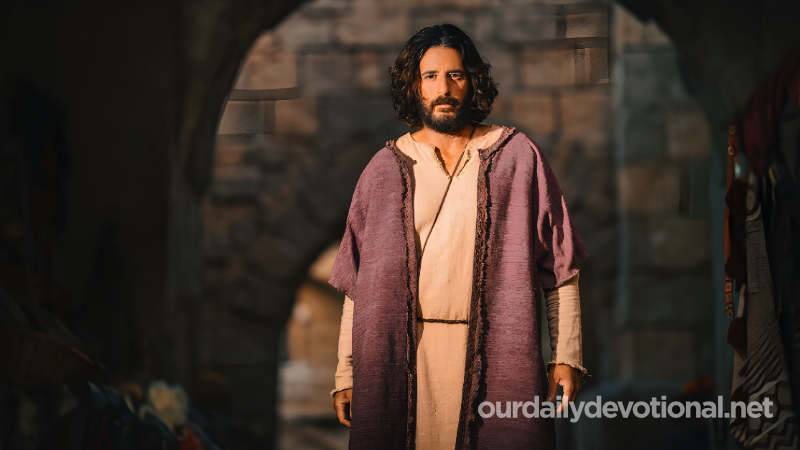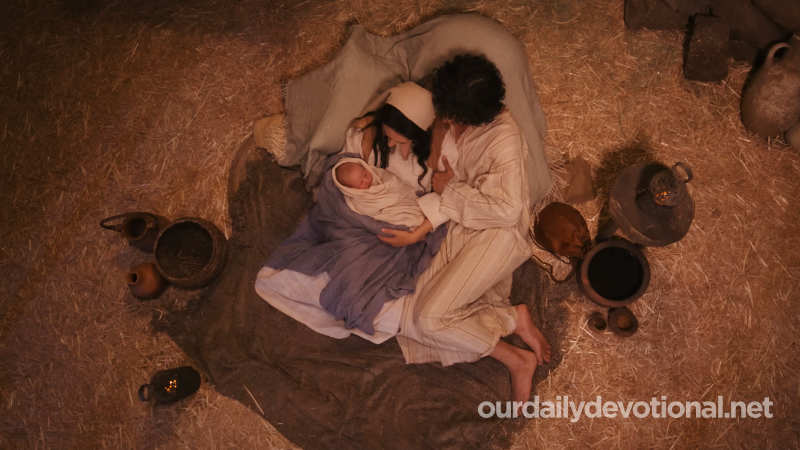They have great importance, as they irrefutably show that God is the author of the whole. It is not merely that Moses or David said something (although the quotations are proof that Moses was the author of the Pentateuch) but that they are introduced by such words as "God commanded" (Matt. 15:4); "says the Holy Spirit" (Heb. 3:7); "David said by the Holy Spirit" (Mark 12:36); “the Holy Spirit spoke through the prophet Isaiah” (Acts 28:25).
And the whole is called "the Scriptures," which are all inspired by God. Thus, everything that is headed “It is written” has the authority of God himself. Quotations from the prophets are introduced in various ways: (a) "That it might be fulfilled" (Mt. 1:22, etc.). The event takes place so that that prophecy is fulfilled. (b) "That it might be fulfilled" (Mt. 2:23).
Such events fall within the perspective of prophecy, and can also be applied on other occasions. (c) "Then ("tote") it was fulfilled" (Mt. 2:17, etc.). The prophecy applied to this event, without this being the purpose of the prophecy. (d) "It was fulfilled" (Mark 15:28). "Today it is fulfilled" (Lk. 4:21).
The prophecy was fulfilled there and then. The quotations also illustrate how Scripture, both Old and New Testament, can be applied, such as when the Lord cited Deuteronomy in rejecting Satan's temptations. See also the different applications of Hab. 2:5. In Ro. 1:17, where a question of justice is involved, the emphasis is "'the righteous' shall live by faith."
In Ga. 3:11, is in contrast to the law: "The righteous shall live 'by faith.'" And in He. 10:38, is in contrast to going back: "The righteous will 'live' by faith." The quotes are from Moses, the Psalms, and the prophets. In those days, books were not divided into chapters and verses, as they are today, which accounts for several expressions. In Mr. 2:26, a quote is given from “(the section) of Abiathar the high priest” (1 Sam. 21:1-6). In Lk. 20:37, "Moses taught it in (the passage of)
bush” (Ex. 3). This may also explain Mt. 27:9, 10, where it is said that the quote is from Jeremiah, since in ancient times this prophet was the first in the Book of Prophets, so his name could have been used as a heading of the whole, as happened with the Psalms for their section.
Most of the citations are from the LXX, undoubtedly because it was better known than the Hebrew text, in the same way that the Reina-Valera is constantly cited today, even though it is not a totally rigorous translation. There are quotes that are not literal from either the Hebrew text or the LXX, the Holy Spirit giving them, when using them, a fullness and energy beyond the revelation of the OT.
Meaning of OLD TESTAMENT QUOTATIONS IN THE NEW TESTAMENT
They have great importance, as they irrefutably show that God is the author of the whole. It is not merely that Moses or David said something (although the quotations are proof that Moses was the author of the Pentateuch) but that they are introduced by such words as "God commanded" (Matt. 15:4);







